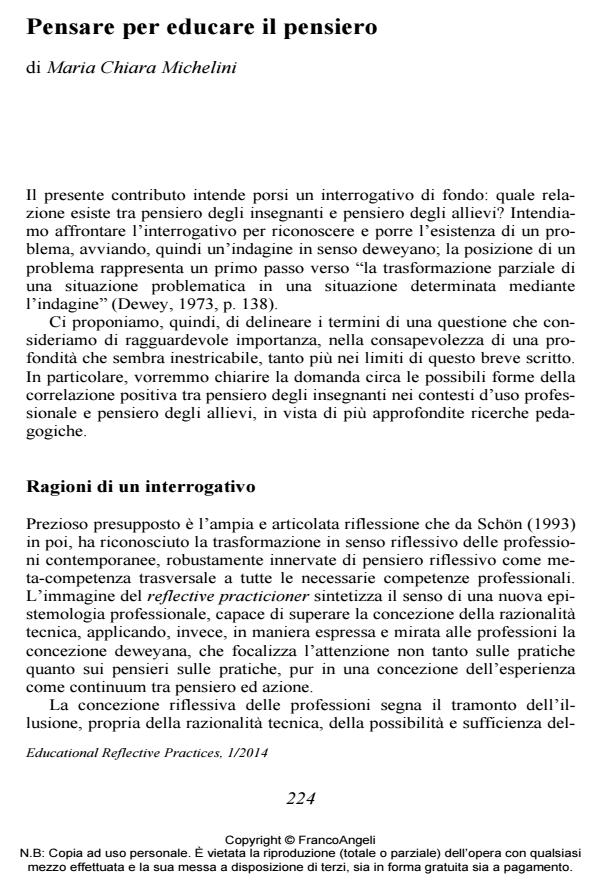Pensare per educare il pensiero
Titolo Rivista EDUCATIONAL REFLECTIVE PRACTICES
Autori/Curatori Maria Chiara Michelini
Anno di pubblicazione 2015 Fascicolo 2014/1
Lingua Italiano Numero pagine 15 P. 224-238 Dimensione file 77 KB
DOI 10.3280/ERP2014-001014
Il DOI è il codice a barre della proprietà intellettuale: per saperne di più
clicca qui
Qui sotto puoi vedere in anteprima la prima pagina di questo articolo.
Se questo articolo ti interessa, lo puoi acquistare (e scaricare in formato pdf) seguendo le facili indicazioni per acquistare il download credit. Acquista Download Credits per scaricare questo Articolo in formato PDF

FrancoAngeli è membro della Publishers International Linking Association, Inc (PILA)associazione indipendente e non profit per facilitare (attraverso i servizi tecnologici implementati da CrossRef.org) l’accesso degli studiosi ai contenuti digitali nelle pubblicazioni professionali e scientifiche
The contribution "Thinking to educate the thought" intends to raise the question of the correlation between teachers' reflective thinking and students’ thinking. Considering the education the best form of thinking the heart of school education, the article particularly explores two possible lines of this relationship. The first involves the definition of intentional didactic setting, the land on which teachers exert the specificity of their professional competences; the second direction concerns the analogy that is created in an intuitive and fast way, between the student’s mental structure and the teacher’s one. The underlying pedagogical hypothesis is that learners’ education of the thought has a lot to do with teachers’ reflective inquiry in both directions, combining the theoretical and practical as well
Maria Chiara Michelini, Pensare per educare il pensiero in "EDUCATIONAL REFLECTIVE PRACTICES" 1/2014, pp 224-238, DOI: 10.3280/ERP2014-001014